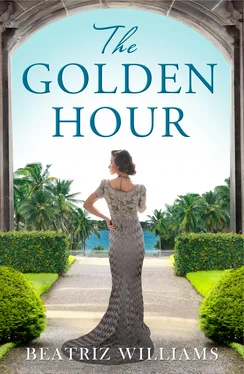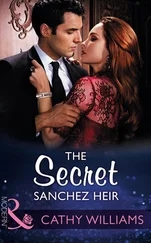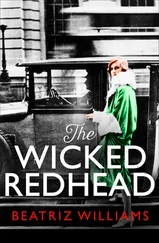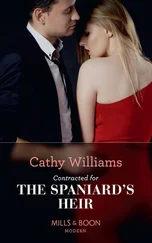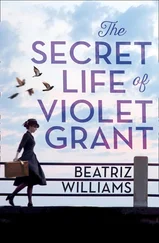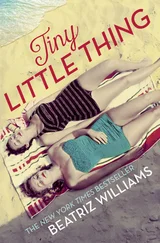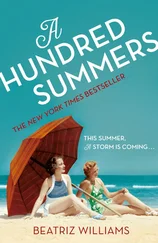“I see.”
“Still, your note was—well, it was marvelous. I don’t wish to take anything away from that. My own men couldn’t have done better.”
“I’m flattered.”
He leans forward, so I can smell his cigarette breath, the faint echo of whatever it was he ate for lunch. “Mrs. Thorpe, I simply can’t allow that information to go any further. Do you understand?”
“Of course I understand. That’s why I’m offering to—”
He drops the cigarette in the gravel and crushes it with his heel. “No, my dear. I don’t think you really do understand.”
And I’m ashamed to say it’s only now I realize what an idiot I’ve been. Not until this instant does it occur to me to ask why, if Mr. B— received my note in the morning—my note hinting delicately of treason at the highest level, treason within the royal family itself—he waited until the fall of night to meet me, to draw me outside, to walk with me into a darkened square before a thousand windows closed for the blackout.
Why, indeed.
I rise from the bench. “Very well. If you’re not going to cooperate, I have no choice—”
With remarkable swiftness, he rises too, draws a small pistol from his pocket, and lodges the end of it in the middle of my coat, just above the knotted belt.
“Mrs. Thorpe. I’m afraid I must insist you give me whatever evidence you’ve obtained in this matter.”
“I don’t have it. Not right here.”
“Where, then?”
“In my hotel room.”
He considers. The pistol remains at my stomach, moving slightly at each beat of my heart. Though my gaze remains on his, I gather the details at the edge of my vision: the trees, bare of leaves; the shrubs, the plantings, all of them shadows against the night, against the murky buildings surrounding us. I observe the distant noise of another omnibus, a faint, drunken cheer from a pub nearby. Possibly, if I screamed, someone might hear me. But I would be dead by the time this noise reached a pair of human ears.
“It’s well hidden,” I continue. “I could save you a lot of trouble.”
Mr. B— nudges the pistol against my stomach. “Very well. Move slowly, please.”
As I begin my turn, I jerk my knee upward, bang smack into the center of his groin. A shot cracks out. I grab the pistol, burning my hand, and slam it into his head, right behind his left ear. He slumps to the ground, and let me tell you, I take off running , hoping to God I don’t have a bullet in me somewhere, hoping to God I knocked him out as well as down.
As I dart across the street, there’s a shout. I don’t stop to discover where it came from, or whom. The sidewalk’s empty, the street’s dark. The sky’s begun to drizzle. I pass a red postbox, the house with the grand piano in the window I noticed this morning, except you can’t see that piano right now, I can’t see anything, the whole world is dark and wet, each stoop concealing its own shadows. I cross another street, another, not stopping to check for traffic—there isn’t any, not with wartime restrictions on brave, threadbare London—until the familiar white signboard resolves out of the mist, BASIL HOTEL in quaint letters.
I pull back, undecided, but my momentum carries me forward into another human chest, female chest.
Oomph! she says, and snatches me by the arms. I lift my hands to push away. I spy a coat, a neck, a fringe of blond hair gathered into a bun.
The woman in the foyer.
“Miss Thorpe?” I gasp.
Her eyes are paler than her brother’s, but I recognize the shape, and the straight, thick eyebrows, though his are a darker gold. The same milky skin, the same freckles. She has pointed cheekbones, a wide, red mouth, a slim jaw. I’m able to drink in all these details because the world seems to have gone still, the clock seems to have stopped, and even the molecules of air, the motes of dust, have stuck in place. Only my blood moves, against the scorched skin of my right hand.
“You must be Leonora,” she says.
“Yes.”
She snatches my elbow and pulls me down the sidewalk. “Come along, quick. My flat’s just around the corner.”
And it occurs to me, as I career along in her wake, that this is just how her brother appeared in my life. Out of the blue in some foreign land, like a genie from a lamp, just when you needed a wish granted.
LULU
JUNE 1941
(The Bahamas)
ON THE MAGAZINE COVER, the woman sits on a rattan sofa and the man sits on the floor at her feet, gazing not at the camera but upward, adoringly, at her. She smiles back in approval. She has a book in her lap, open to the frontispiece or maybe the table of contents—she doesn’t look as if she actually means to read it—and in her hair, a ribbon topped with a bow. (A bow , I tell you.) A pair of plump Union Jack sofa pillows flanks either side of her. A real domestic scene, a happy couple in a tasteful home. THE WINDSOR TEAM, reads the caption, in small, discreet letters at the bottom. At the top, much larger, white type inside a block of solid red: L I F E.
I’d been staring at this image, on and off, for most of the journey from New York, having paid a dime for the magazine itself at the newsstand in the Eastern Air Lines terminal building at LaGuardia Field. (It was the latest issue, now there’s coincidence for you.) I’d held it on my lap as what you might call a talisman, throughout each leg of the journey, each takeoff and landing, Richmond followed by Savannah followed by some swamp called Orlando followed by Miami at last, smacking down to earth at half past five in the afternoon, taxi to a shabby hotel, taxi back to the airfield this morning, and I still didn’t feel as if I’d quite gotten to the bottom of that photograph. Oh, sometimes I flipped the magazine open and read the article inside—the usual basket of eggs, served sunny-side up—but mostly I studied the picture on the cover. So carefully arranged, each detail in place. Those Union Jack pillows, for example. ( We just couldn’t be any more patriotic, could we? Oh, my, no. We are as thoroughly British as afternoon tea .) That hair ribbon, the bow. ( We are as charmingly, harmlessly feminine as the housewife next door .) The enormous jeweled brooch pinned to her striped jacket, just above the right breast— and what was it, anyway? The design, I mean. I squinted and peered and adjusted the angle of light, but I couldn’t make any sense of the shape. No matter. It was more brooch than I could afford, that was all, more jewels than I could ever bear on my own right breast. ( We are not the housewife next door after all, are we? We are richer, better, royal. Even if we aren’t quite royal. Not according to the Royals. Still, more royal than you, Mrs. American Housewife. )
The airplane lurched. I peered through the window at the never-ending horizon, turquoise sea topped by a turquoise sky, and my stomach—never at home aboard moving objects—lurched too. According to my wristwatch, we were due at Nassau in twenty minutes, and the twenty-one seats of this modern all-metal Pan American airliner were crammed full of American tourists in Sunday best and businessmen in pressed suits, none of whose stomachs seemed troubled by the voyage. Just my dumb luck, my dumb stomach. Or was it my ears? Apparently motion sickness had something to do with your inner ear, the pressure of fluid inside versus the pressure of air without, and when the perception of movement on your insides didn’t agree with the perception of movement from your eyeballs, well, that’s where your stomach got into difficulty. I supposed that explanation made sense. All the world’s troubles seemed to come from friction of one kind or another. One thing rubbing up against another, and neither one backing down.
Читать дальше
